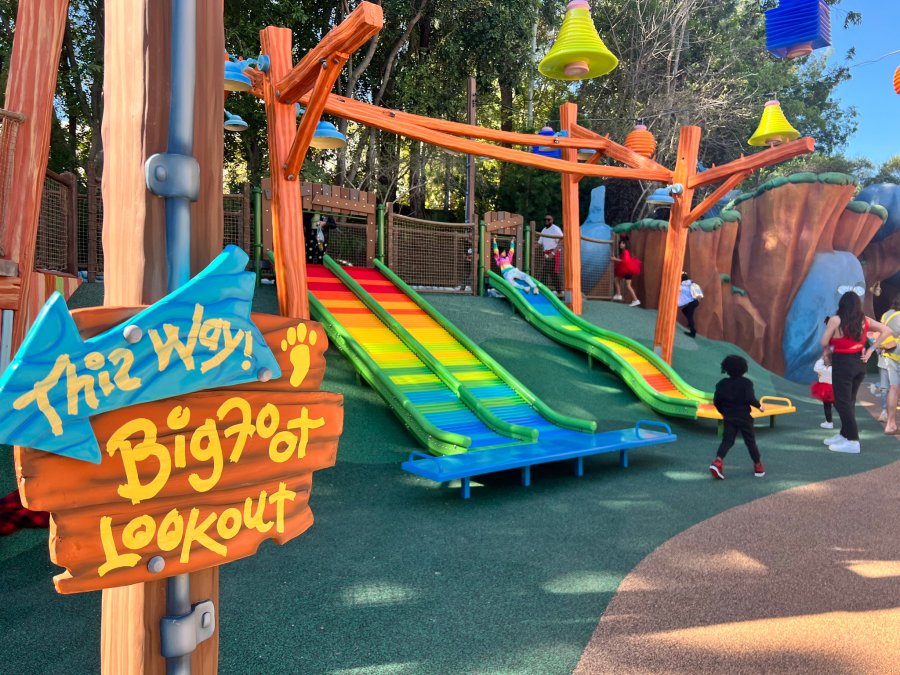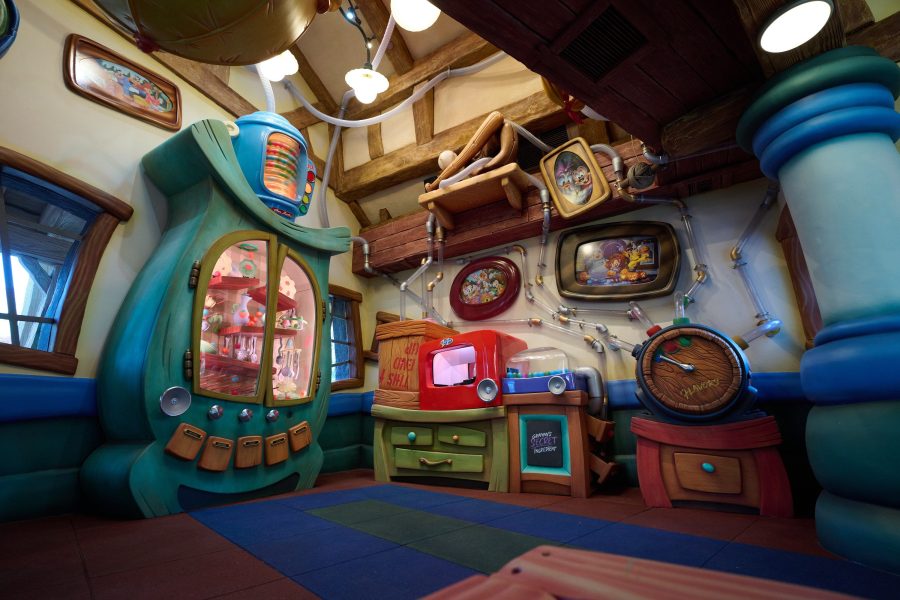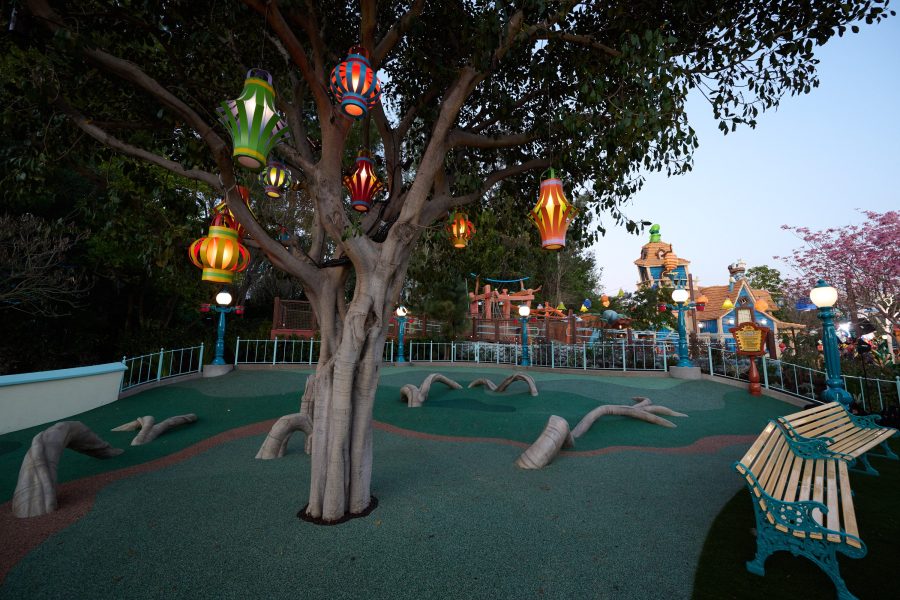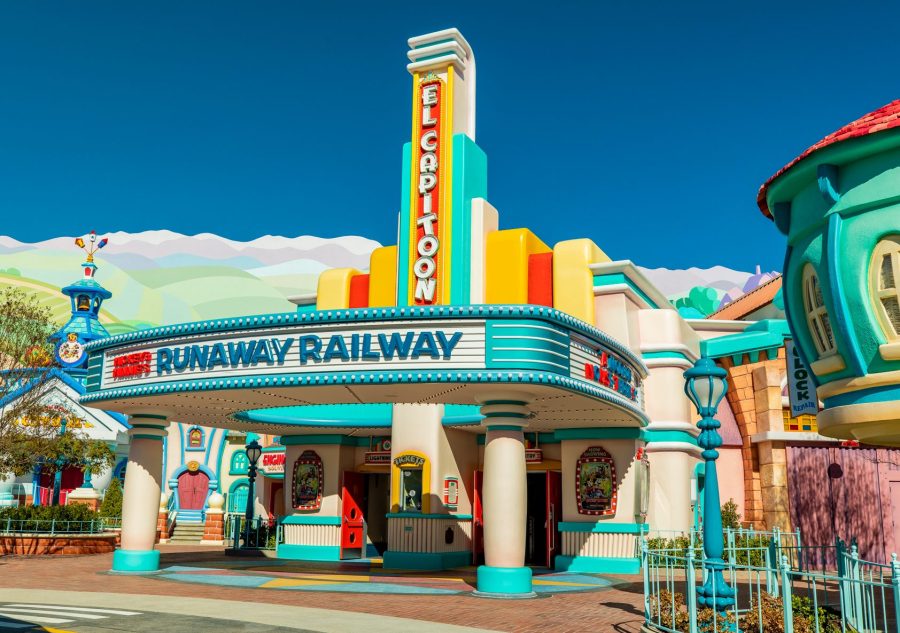Walt Disney famously said that Disneyland would never be completed. The idea was that there would always be room for improvement, room for innovation and room for new ideas.
It was with that mindset that Disney Imagineers took on the task of revitalizing a large portion of the young child-centric Mickey’s Toontown to better cater to a group of fans who may have been left out by the land’s original layout.
On Sunday, the new-and-improved Toontown was unveiled to the public after a year of construction. While much of the beloved area remains the same, new additions and modifications have transformed Toontown into a place of inclusion for those of all abilities.
During a reopening ceremony on Saturday, Disneyland President Ken Potrock highlighted the changes and praised the innovative team behind the decision-making process.
“One of the things that we wanted to be able to do is recognize that this was going to be a land that was available, not just to all of our guests and our families, but all children of all capabilities and all ages,” Potrock said. “I think the Imagineering team built this and developed this with such sensitivity that it really is coming through. We hope you’ll look at it through those lenses today as you get to experience it.”
The land was painstakingly evaluated and appraised by Disney as it looked to incorporate those ideals in a more meaningful way. Some changes are big; others are small, but each new addition was made with careful consideration.
As you walk into Mickey’s Toontown, you’re greeted by the new centerpiece of this inclusivity mission, CenTOONial Park, which is headlined by a new interactive fountain. The fountain features the vintage visage of Mickey and Minnie Mouse atop the spire, with water cascading in all directions from the fountain’s flowery top.
The fountain has interactive pools of various heights for those looking to splash and “have a sensory experience,” Disney says. The fountain’s lighting package shines at night and includes a special moment at the end of the day for families who might not stick around for fireworks.

“Goofy’s How-To-Play Yard” has new wheelchair-accessible roller slides for children of all abilities that are equipped with a bench at the end to make it easier for children to play independently. There’s also an interactive sound garden that was designed to feature sounds that are fun for all children, including those who may have sensory issues triggered by loud noises. Nearby, there are plenty of open spaces for families to unwind and escape the hustle and bustle of the theme park experience.
Disney said the land is designed for different “play stages” as children grow up. Imagineers visited various children’s museums when planning for the new additions to Mickey’s Toontown.
“We’ve got a lot of guests who utilize our parks in different ways, who see, hear, feel our experiences in different ways,” said Jeffrey Shaver-Moskowitz, an executive producer at Disneyland Resort. “We want every child to know that when it came to this land, it was designed for them—that they were seen, and that this place welcomes them.”
Ensuring that children of all ability levels have a magical experience is not only part of the Disney corporate philosophy, it also hearkens back to the early ideation of Disneyland itself, when Walt Disney would take his children to enjoy the carousel at Griffith Park.
“He was like, ‘I really want to do something where we can all do something as a family,’ and that’s where Disneyland basically came from,” said Jen Schwartz.

Schwartz was the lead concept designer on Mickey’s Toontown’s newest big ticket expansion, Mickey & Minnie’s Runaway Railway. She was involved in the process of creating the new ride from inception to its grand opening, working with a creative director, writers and producers on the project.
Mickey & Minnie’s Runaway Railway is a technological marvel that takes riders along on a picnic date gone wrong, when a train operated by Goofy literally goes off the rails.
The ride’s queue tells its own unique story about the relationship between Disney’s most famous couple.
“So basically, Minnie is so excited for the premiere of ‘Perfect Picnic,’ and so she decided to get on board with the Toontown circus society and create sort of like paying homage to Mickey Mouse,” Schwartz said. “So we have an exhibit called ‘Mickey through the Ears’ and it goes from the 1920s all the way to his current stuff, all of his basic movie props and costumes and so as you go through the queue, you’re paying homage to all things Mickey Mouse.”
In designing the exterior and queue for the new ride, Disney took a look at Toontown’s existing architecture and tried to find a way to bridge the gap between Toontown of 30 years ago and Toontown of today.
“Before it was like a lot of loud saturated colors and the architecture was very bulbous. And it just seemed like really, like in-your-face, right? So the new Toontown, we wanted to try to calm everything down, but still keep it fun and entertaining, especially for young families,” Schwartz said.
The building is Art Deco-style, but Schwartz said they still wanted it to have “more of a bulbous form” without being overly cartoonish. Joining two different architectural designs in many ways offered the same challenges as updating Toontown into its current inclusive form, without taking away any of its long-lasting charm.
Schwartz is a mother of two young kids and said the experience from a child’s perspective was critical as Disney tiptoed into the next chapter of Toontown’s existence; how could this part of Disneyland bridge the gap between young children, older kids, parents and people with differing needs and abilities?
“When we are designing, a lot of us with kids have that in mind. Like what if you have a 10-year-old and a baby? The 10 year old is going to want to go into Indiana Jones or whatnot but will also really like this attraction so you can all go on it at the same time,” Schwartz said.
The Runaway Railway is another example of Disney’s initiative to be more inclusive. It has no age limits or height restrictions, and there are “sensory areas” or “decompression spaces” throughout Toontown for those who may feel overwhelmed.
Potrock said the team behind the new Toontown was successful in its mission to be more inclusive.
“One of the things that went into this was care and thoughtfulness,” Potrock said. “We wanted to make sure that to all of our guests, and especially our children with a variety of different capabilities and abilities, that this was a welcoming place for everyone.”

Schwartz, who has been with Disney for almost a decade, has worked on massive projects, including Guardians of the Galaxy: Mission Breakout, Luigis Rollicking Roadsters, and another large scale transformation: Pixar Pier.
Despite a lifetime’s-worth of successful projects, Toontown and Runaway Railway hold a special place in her heart.
“This is my absolute favorite. I love it,” Schwartz said, adding that her own kids were going to “flip” when they see it.
Mickey’s Toontown officially reopened to the public on March 19. Mickey and Minnie’s Runaway Railway has been operational since Jan. 27.
Additional reporting by Nexstar’s Scott Gustin.






















